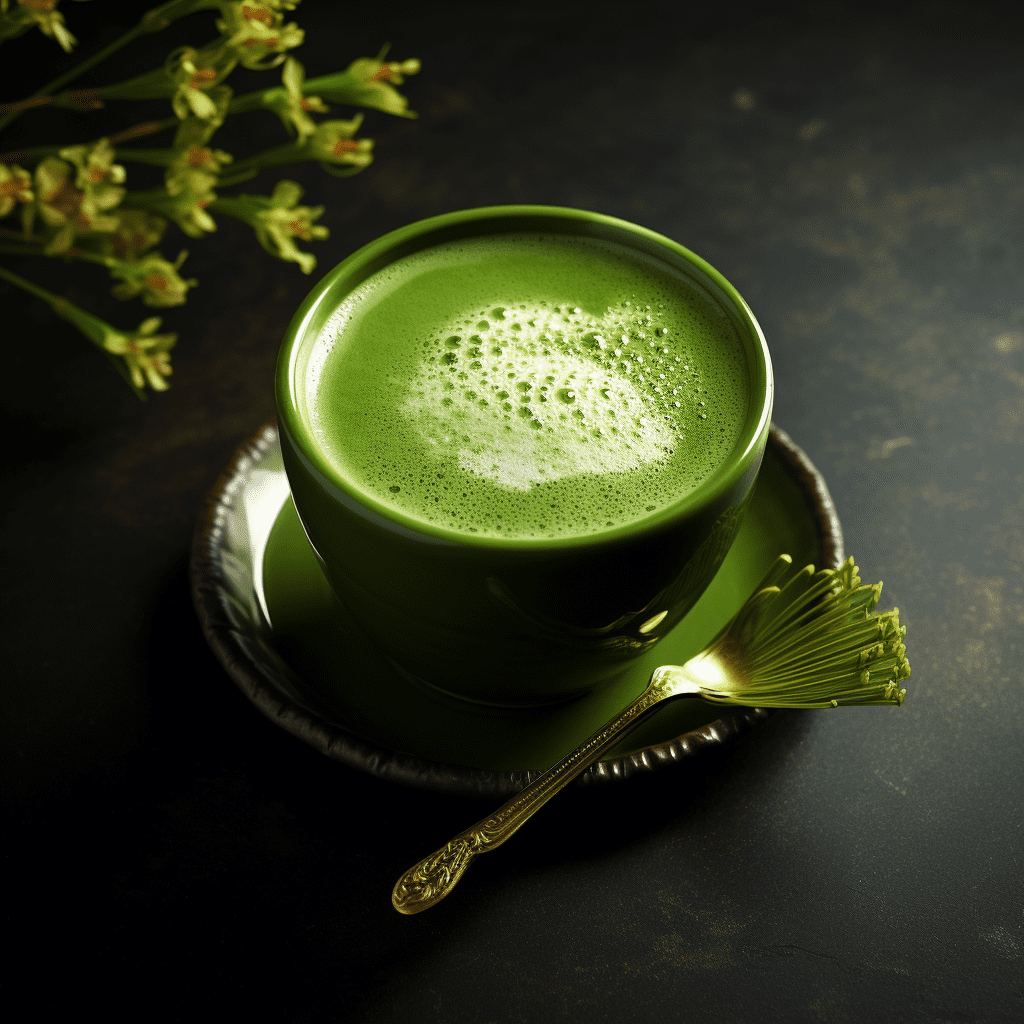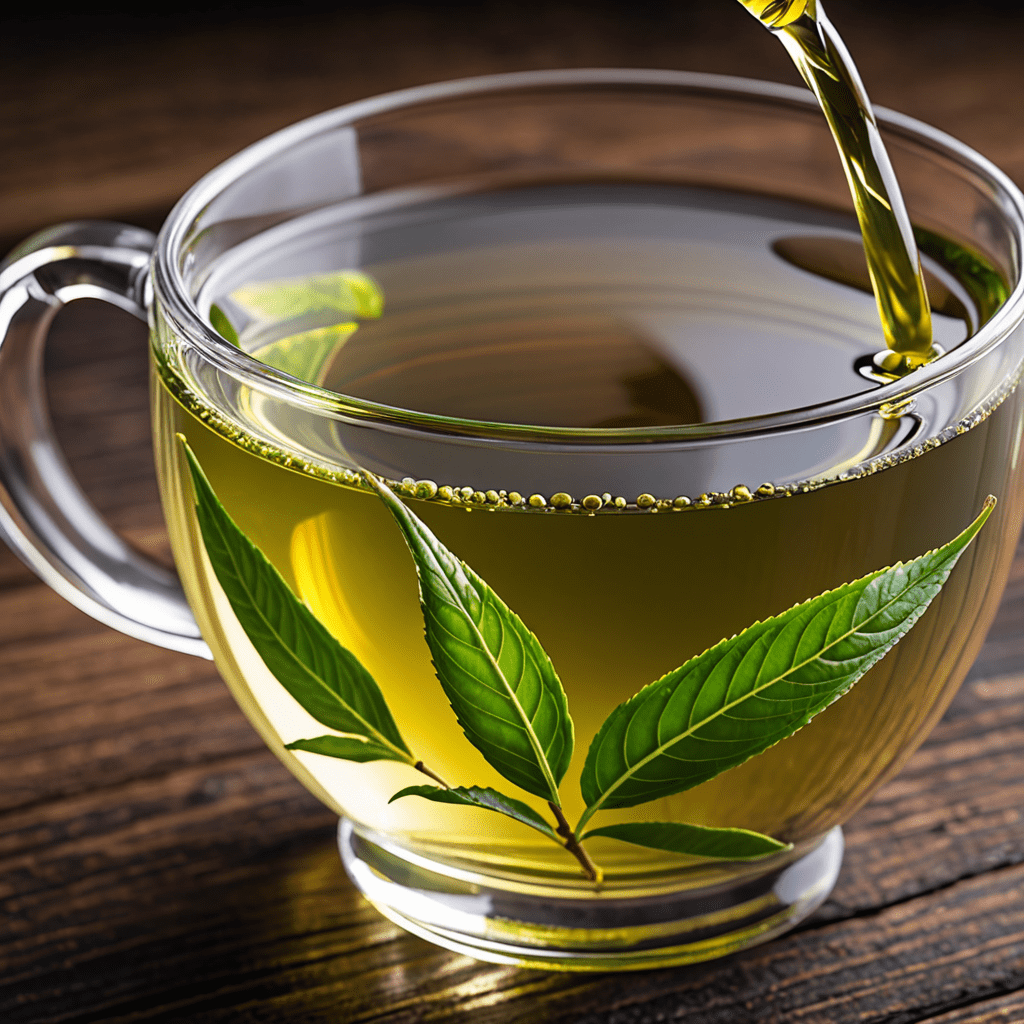
What Does Matcha Green Tea Taste Like?
Matcha green tea is a popular beverage known for its vibrant green color and unique flavor profile. Made from finely ground green tea leaves, matcha offers a rich, earthy taste that is distinct from other types of tea. In this article, we will explore the taste of matcha green tea in more detail and discuss the factors that contribute to its flavor.
The Flavor Profile of Matcha Green Tea
When it comes to the taste of matcha green tea, it can be described as:
- Grassy and Vegetal: Matcha has a pronounced grassy and vegetal flavor, reminiscent of fresh green vegetables or seaweed. This taste is a result of the shade-growing process that the tea leaves undergo before harvest. The leaves’ exposure to limited sunlight enhances the chlorophyll levels, giving matcha its vibrant color and distinct flavor.
Umami: Matcha has a unique umami taste, which can be described as a pleasant savory or brothy flavor. This characteristic is a result of the amino acids, particularly L-theanine, present in the tea leaves. The umami taste adds depth and complexity to the overall flavor profile of matcha.
Bittersweet: Matcha has a balanced bittersweet taste. While it does contain some bitterness, it is generally milder compared to other green teas. The bitterness comes from the catechins found in the tea leaves. However, this bitterness often transforms into a pleasant sweetness in the aftertaste.
Creamy and Smooth: Matcha has a creamy, smooth texture when properly prepared. This velvety mouthfeel is a result of the fine powder consistency of matcha and the way it is whisked with hot water. The smoothness adds to the overall sensory experience of drinking matcha.
Mildly Astringent: Matcha does have a slight astringency, which is the drying or puckering sensation you might feel in your mouth. However, compared to other green teas, matcha’s astringency is relatively mild. It adds a refreshing quality to the tea without overpowering the overall taste.
Balance of Sweet and Bitter Notes: The flavor of matcha green tea strikes a delicate balance between sweet and bitter notes. The sweetness can be described as subtly sweet, while the bitterness adds complexity and depth. This well-balanced taste makes matcha a enjoyable beverage for many tea enthusiasts.
Factors Influencing Matcha’s Taste
The taste of matcha green tea can vary based on several factors, including:
- Quality of Matcha: The quality of matcha can greatly impact its taste. Higher-quality matcha often has a smoother, sweeter taste with less bitterness. Lower-quality matcha may have a more pronounced grassy or bitter flavor.
Growing Conditions: The growing conditions, such as the location and climate, can influence the flavor of matcha. Different regions and environments yield unique flavor profiles, offering a range of tastes to explore.
Harvesting and Processing Techniques: The timing and techniques used during the tea leaf harvest and processing can impact the taste of matcha. Younger leaves tend to have a milder and sweeter taste, while older leaves can contribute to a more bitter flavor.
Storage and Age: The storage conditions and age of matcha can affect its taste. Freshly harvested matcha tends to have a more vibrant and lively flavor, whereas older matcha may lose some of its sweetness and develop a more pronounced bitterness.
Experimenting with Matcha Flavors
If you find matcha’s taste intriguing, there are various ways to explore and enhance its flavors. Here are a few ideas to experiment with:
- Add Sweeteners: If you prefer a sweeter taste, you can add a touch of honey, agave syrup, or stevia to your matcha tea. Adjust the amount according to your personal preference.
Blend with Milk: For a creamier texture and a hint of sweetness, try making a matcha latte by blending matcha powder with your choice of milk or plant-based alternatives like almond or oat milk. This method also works well with iced matcha for a refreshing summer beverage.
Flavored Syrups: You can add a twist to your matcha by incorporating flavored syrups like vanilla, caramel, or coconut. These syrups can enhance the taste and provide a unique flavor combination.
Pair with Sweets: Matcha’s flavor complements a variety of sweets, such as mochi, matcha-flavored desserts, or even dark chocolate. The sweetness of these treats can harmonize with the grassy and earthy taste of matcha.
Explore Culinary Applications: Beyond traditional tea preparation, matcha can also be used in cooking and baking. From matcha-flavored cakes and cookies to matcha-infused savory dishes, there are endless possibilities to explore and discover new flavor combinations.
Frequently Asked Questions (FAQ)
Q: Is matcha green tea bitter?
A: While matcha does contain some bitterness, it is generally milder compared to other green teas. The bitterness comes from the catechins present in the tea leaves. When whisked properly and balanced with the other taste elements, matcha offers a well-rounded and enjoyable flavor.
Q: Does matcha green tea taste like regular green tea?
A: Matcha green tea has a distinct taste that differentiates it from regular green tea. The shade-growing process and the unique way it is processed and consumed contribute to matcha’s overall flavor profile, making it quite different from steeped green tea.
Q: Can the taste of matcha vary depending on the brand?
A: Yes, the taste of matcha can vary depending on the brand and quality. Higher-quality matcha often has a smoother and sweeter taste, while lower-quality matcha might have a more pronounced grassy or bitter flavor. It’s always recommended to explore different brands to find the taste that suits your preferences.
Q: Does matcha have caffeine?
A: Yes, matcha contains caffeine. However, the caffeine content can vary depending on factors such as the quality of the matcha and the amount consumed. On average, matcha contains less caffeine than a cup of coffee but more than a cup of regular green tea.
Q: Can matcha taste be an acquired taste?
A: Yes, matcha’s unique taste can be an acquired taste for some people. Its grassy and vegetal notes, combined with the creamy texture, might take time for taste buds to appreciate fully. Gradually exploring matcha in different preparations and flavor combinations can help in developing a liking for its taste.
Q: Can matcha taste change if it’s not prepared correctly?
A: Yes, matcha’s taste can be impacted if it is not prepared correctly. Factors such as water temperature, whisking technique, and the ratio of matcha to water can affect the flavor. It’s essential to follow proper matcha preparation instructions to ensure the best taste experience.
In conclusion, matcha green tea offers a unique flavor profile that combines grassy and vegetal notes with a hint of sweetness and a velvety smooth texture. Its umami taste adds depth, making matcha a fascinating choice for tea enthusiasts. While matcha does have some bitterness, it is balanced by its overall flavor, creating a well-rounded and satisfying tea-drinking experience. So go ahead, try a cup of matcha, and embark on a delightful journey!


